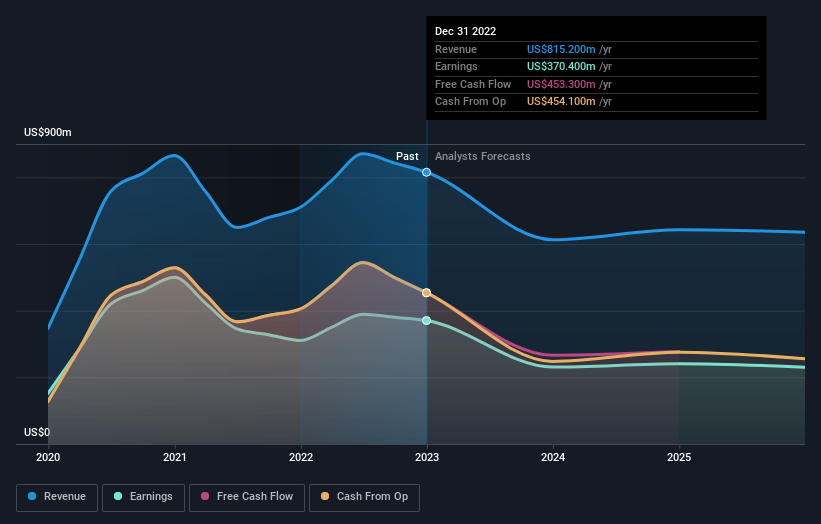- United Kingdom
- /
- Capital Markets
- /
- LSE:PLUS
Plus500 Ltd.'s (LON:PLUS) market cap dropped UK£92m last week; individual investors who hold 50% were hit as were institutions

Key Insights
- The considerable ownership by retail investors in Plus500 indicates that they collectively have a greater say in management and business strategy
- The top 25 shareholders own 46% of the company
- Institutional ownership in Plus500 is 37%
If you want to know who really controls Plus500 Ltd. (LON:PLUS), then you'll have to look at the makeup of its share registry. The group holding the most number of shares in the company, around 50% to be precise, is retail investors. In other words, the group stands to gain the most (or lose the most) from their investment into the company.
Following a 5.1% decrease in the stock price last week, retail investors suffered the most losses, but institutions who own 37% stock also took a hit.
In the chart below, we zoom in on the different ownership groups of Plus500.
See our latest analysis for Plus500

What Does The Institutional Ownership Tell Us About Plus500?
Institutional investors commonly compare their own returns to the returns of a commonly followed index. So they generally do consider buying larger companies that are included in the relevant benchmark index.
We can see that Plus500 does have institutional investors; and they hold a good portion of the company's stock. This implies the analysts working for those institutions have looked at the stock and they like it. But just like anyone else, they could be wrong. It is not uncommon to see a big share price drop if two large institutional investors try to sell out of a stock at the same time. So it is worth checking the past earnings trajectory of Plus500, (below). Of course, keep in mind that there are other factors to consider, too.

Our data indicates that hedge funds own 8.6% of Plus500. That worth noting, since hedge funds are often quite active investors, who may try to influence management. Many want to see value creation (and a higher share price) in the short term or medium term. Looking at our data, we can see that the largest shareholder is Odey Asset Management LLP with 8.6% of shares outstanding. In comparison, the second and third largest shareholders hold about 5.7% and 5.0% of the stock.
On studying our ownership data, we found that 25 of the top shareholders collectively own less than 50% of the share register, implying that no single individual has a majority interest.
Researching institutional ownership is a good way to gauge and filter a stock's expected performance. The same can be achieved by studying analyst sentiments. There are plenty of analysts covering the stock, so it might be worth seeing what they are forecasting, too.
Insider Ownership Of Plus500
The definition of an insider can differ slightly between different countries, but members of the board of directors always count. Management ultimately answers to the board. However, it is not uncommon for managers to be executive board members, especially if they are a founder or the CEO.
Most consider insider ownership a positive because it can indicate the board is well aligned with other shareholders. However, on some occasions too much power is concentrated within this group.
We can see that insiders own shares in Plus500 Ltd.. This is a big company, so it is good to see this level of alignment. Insiders own UK£54m worth of shares (at current prices). If you would like to explore the question of insider alignment, you can click here to see if insiders have been buying or selling.
General Public Ownership
The general public -- including retail investors -- own 50% of Plus500. This level of ownership gives investors from the wider public some power to sway key policy decisions such as board composition, executive compensation, and the dividend payout ratio.
Next Steps:
While it is well worth considering the different groups that own a company, there are other factors that are even more important. For instance, we've identified 2 warning signs for Plus500 (1 can't be ignored) that you should be aware of.
But ultimately it is the future, not the past, that will determine how well the owners of this business will do. Therefore we think it advisable to take a look at this free report showing whether analysts are predicting a brighter future.
NB: Figures in this article are calculated using data from the last twelve months, which refer to the 12-month period ending on the last date of the month the financial statement is dated. This may not be consistent with full year annual report figures.
New: Manage All Your Stock Portfolios in One Place
We've created the ultimate portfolio companion for stock investors, and it's free.
• Connect an unlimited number of Portfolios and see your total in one currency
• Be alerted to new Warning Signs or Risks via email or mobile
• Track the Fair Value of your stocks
Have feedback on this article? Concerned about the content? Get in touch with us directly. Alternatively, email editorial-team (at) simplywallst.com.
This article by Simply Wall St is general in nature. We provide commentary based on historical data and analyst forecasts only using an unbiased methodology and our articles are not intended to be financial advice. It does not constitute a recommendation to buy or sell any stock, and does not take account of your objectives, or your financial situation. We aim to bring you long-term focused analysis driven by fundamental data. Note that our analysis may not factor in the latest price-sensitive company announcements or qualitative material. Simply Wall St has no position in any stocks mentioned.
About LSE:PLUS
Plus500
A fintech company, operates technology-based trading platforms in Europe, the United Kingdom, Australia, and internationally.
Flawless balance sheet, good value and pays a dividend.
Similar Companies
Market Insights
Community Narratives




